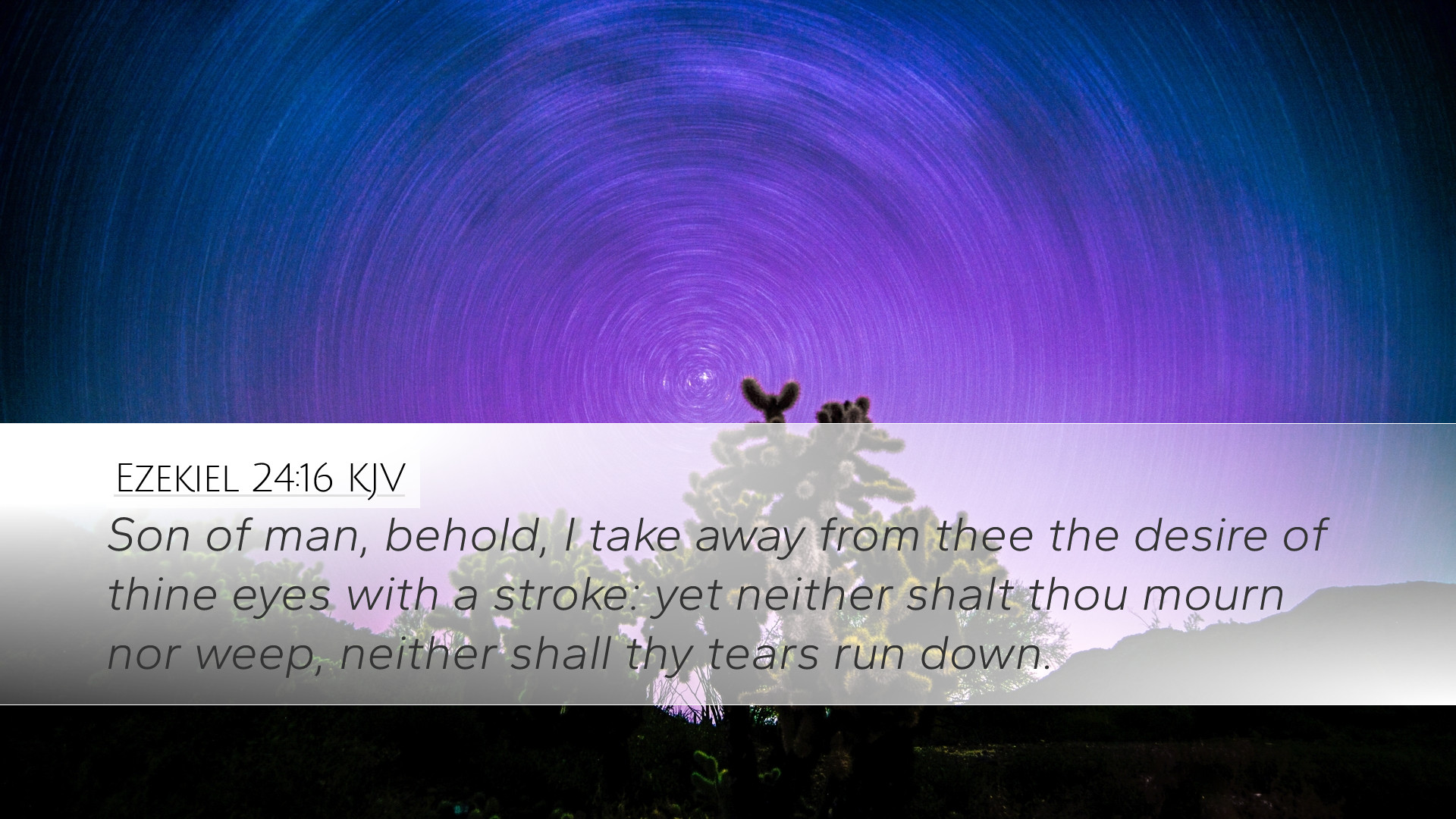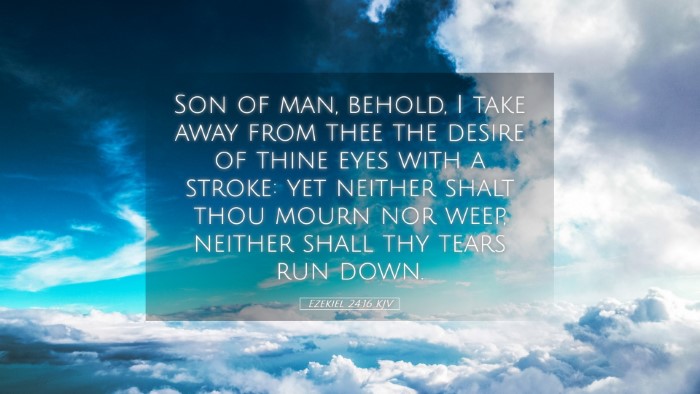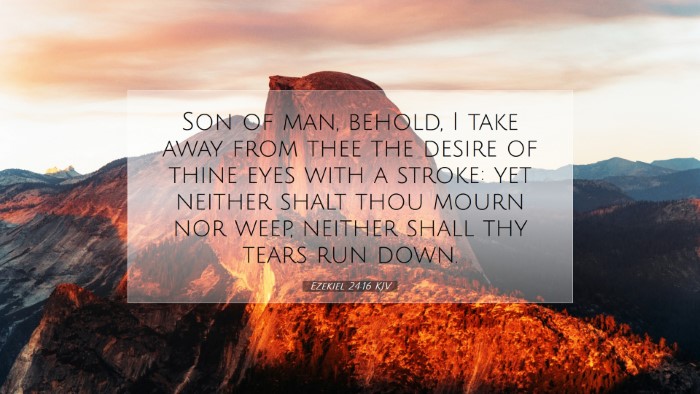Ezekiel 24:16 Commentary
Bible Verse: "Son of man, behold, I take away from thee the desire of thine eyes with a stroke: yet neither shalt thou mourn nor weep, neither shall thy tears run down."
Introduction
The verse of Ezekiel 24:16 holds profound significance within the prophetic literature of the Old Testament. Through this verse, God communicates to Ezekiel the impending loss he will face as a demonstration of the fate awaiting Jerusalem. This commentary seeks to delve into the implications of this verse, drawing insights from esteemed public domain commentaries by Matthew Henry, Albert Barnes, and Adam Clarke.
Contextual Analysis
Ezekiel, a prophet during the Babylonian exile, conveys messages of judgment and eventual restoration. In this chapter, God symbolizes the impending destruction of Jerusalem through the striking of Ezekiel's most cherished possession, representing the city and the temple that the Israelites held dear.
Symbolism of Loss
Matthew Henry emphasizes that the desire of the eyes symbolizes that which is most precious and dear to an individual. This symbol points not only to Ezekiel's personal grief but also reflects the broader emotional and spiritual desolation experienced by the people of Israel. The loss serves as a dire warning about the consequences of their rebellion against God.
Divine Command and Restraint
Albert Barnes notes the significance of God's command that Ezekiel should neither mourn nor weep. This aspect highlights the severity of the situation, emphasizing that sometimes, God’s judgments must be accepted without personal lamentation. Ezekiel’s prophetic role requires him to exhibit strength and fidelity to God’s word, regardless of personal sorrow.
Theological Implications
The theological weight of this verse lies in its representation of God’s sovereignty and the seriousness of sin. The judgment portrayed here illustrates how deeply God feels about His covenant people’s unfaithfulness. Adam Clarke elaborates on this notion, noting that the stroke refers to a decisive and irreversible act of judgment against Israel, reminding us of the seriousness of disobedience and the holiness of God.
God's Sovereignty and Judgment
In this context, the phrase "with a stroke" symbolizes an immediate and overwhelming judgment from God. The use of this term indicates that God’s actions are deliberate and purposeful. It pushes theologians and students of the Bible to reflect on the character of God — a God who is both loving yet just, a God who occasionally necessitates discipline to recalibrate His wandering children back to the path of righteousness.
Practical Applications
This verse holds significant lessons for contemporary believers. Pastors and theologians can draw from this text to teach about the seriousness of sin and the need for repentance. In a world where God’s judgment may seem distant or softened, Ezekiel’s experience serves as a reminder of the profound consequences of turning away from God.
Faith During Trials
Furthermore, believers can be encouraged to maintain faith during trials. Just as Ezekiel was called to remain faithful and restrained in his grief despite his loss, Christians today are reminded to uphold their trust in God's ultimate plan — acknowledging that grief does not preclude divine purpose in their lives.
Conclusion
In conclusion, Ezekiel 24:16 offers a rich narrative loaded with theological insight and practical wisdom. By intertwining the reflections from noted biblical commentators, we find a deeper understanding of God's character, the weight of judgment, and the call to faithful obedience amid trials. As Ezekiel's journey continues to unfold, so too does the opportunity for modern readers to reflect on their relationship with God, their response to loss, and their commitment to His prophetic calling.
References from Commentators
- Matthew Henry: Explores the emotional and spiritual implications of loss.
- Albert Barnes: Discusses the divine command and implications of grief in prophecy.
- Adam Clarke: Elaborates on the nature of God's judgment and its significance.


